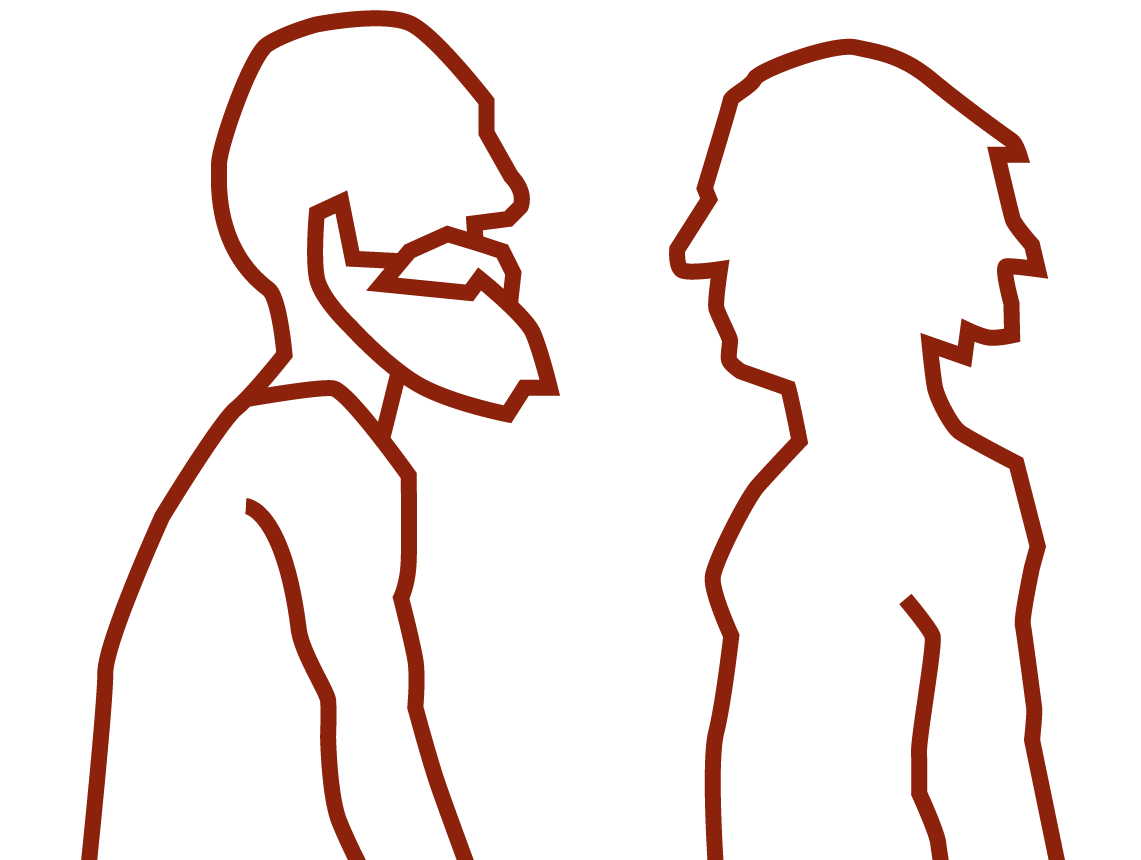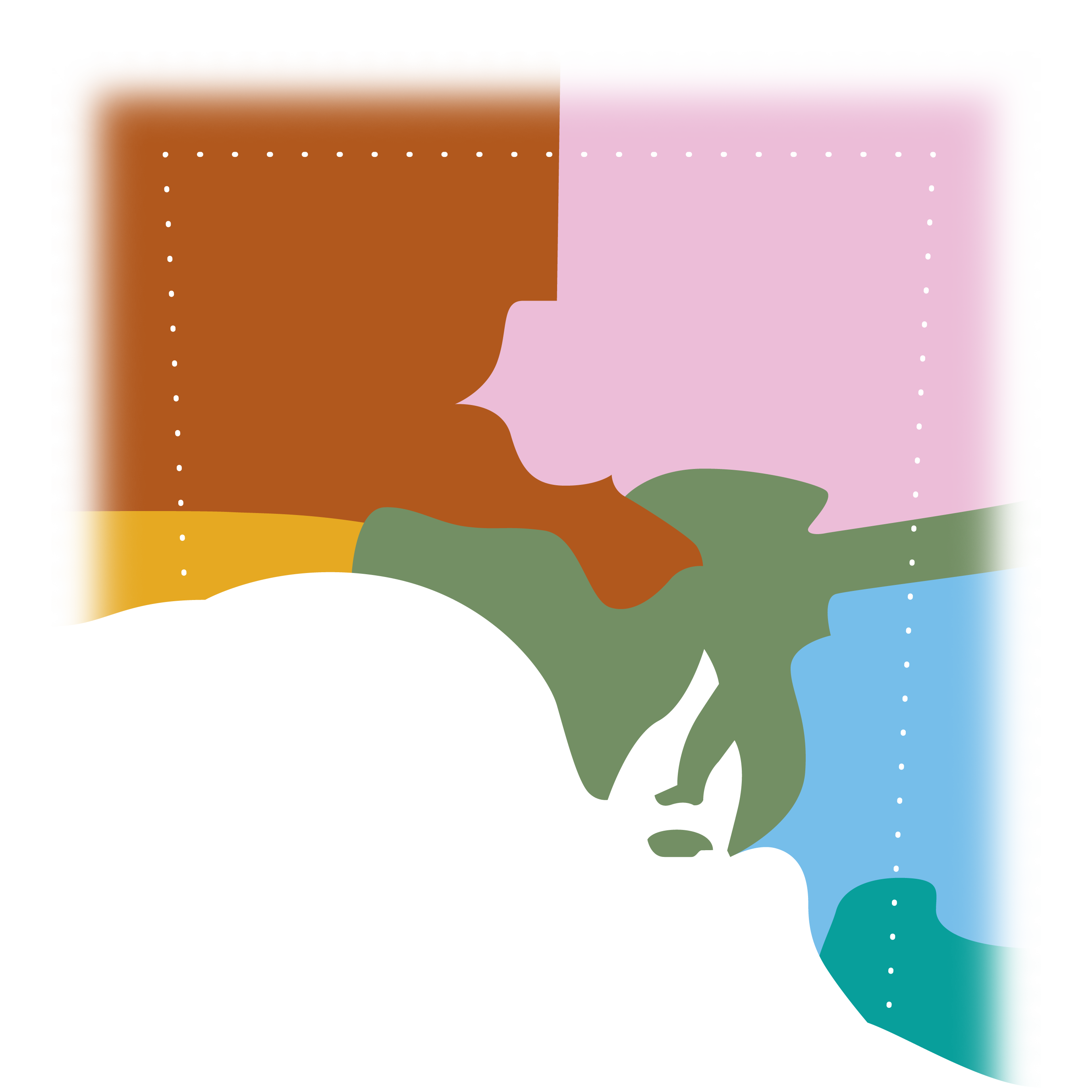
In this lesson we will be learning some basic conversation in Tanganekald ruminyeri (Tanganekald language). You will learn how to welcome someone, to ask how they are, their name, where they’re from and also ask where they are going.
Language learning is presented in two columns. The first column is Tanganekald and the second column is English.
| Tanganekald | English | |
| Tanganekald ruminyeri | Tanganekald language |
Greetings
Here’s how you would welcome someone if they are a guest to your manda (home) or ruwi (country).
| Nguldi arndu! | Welcome! | |
| Nguldi arndu ananyi ruwi! | Welcome to my country! | |
| Nguldi arndu ananyi manda! | Welcome to my home! |
nguldi means 'well', arndu means 'come', ananyi means 'my', ruwi means 'country' and manda means 'house, home, hut'. There is no exact word for 'hello' in Tanganekald ruminyeri. Here's how you would greet someone in a simple way.
| Ngankuri nanggi. | Good day. |
ngankuri means 'good' and nanggi means 'day'.
How are you?
Here’s how you can ask how someone is.
| Ngenta nguldi? | How are you? |
ngenta means 'you' and nguldi means 'well'. Here's how you might ask after someone's family members. For more family words take a look at:
Lesson Eight: Family and People
| Ngomanyi nangar nguldi? | Is your mother well? | |
| Ngomanyi matjurunu nguldi? | Is your father well? | |
| Ngomanyi ngatjanu nguldi? | Is your grandfather (mother’s father) well? | |
| Ngomanyi mayanawi nguldi? | Is your grandfather (father’s father) well? | |
| Ngomanyi pakanu nguldi? | Is your grandmother (mother’s mother) well? | |
| Ngomanyi mutha nguldi? | Is your grandmother (father’s mother) well? | |
| Ngomanyi tarti nguldi? | Is your younger brother/sister well? | |
| Ngomanyi kilawi nguldi? | Is your older brother well? |
ngomanyi means 'your' and nguldi means 'well'. Nangar means 'mother', matjurunu means 'father', ngatjanu means 'mother's father', mayanawi means 'father's father', pakanu means 'mother's mother', mutha means 'father's mother', tarti means 'younger brother/younger sister' and kilawi means 'older brother'. Here's how you could respond to these questions.
| Yekau, ngapa nguldi | Yes, I’m well. | |
| Yekau, ya nguldi. | Yes, he/she is well. | |
| Ngenta tau nguldi. | Not well. | |
| Ya tau nguldi. | He/she is not well. | |
| Tau, ngapa wirin. | No, I’m sick. | |
| Tau, ya wirin. | No, he/she is sick. |
yekau means 'yes', ngapa means 'I', nguldi means 'well', ya means 'he/she', tau means 'no' or 'not', wirin means 'being sick'. Instead of just shaking your head 'no', Tanganekald people would zig zag their head side-to-side and forward and down to indicate 'no'.
Where are you from?
You might like to ask where someone is from and what their nation is. There are many different language groups in the Coorong region which together form the Ngarrindjeri nation. This includes Yaraldi, Ramindjeri and Tanganekald. Here's how you would ask someone where they are from.
| Ngenta tandulnd? | What nation are you from? |
ngenta means 'you' and tandulnd means 'what nation'. To reply to this question, you might say the following.
| Ngapa Tanganekald. | I’m Tanganekald. | |
| Ngapa Yaraldikald. | I’m Yaraldi. |
ngapa means 'I' and the ending -kald means 'nation'. Here's how you would ask where someone's from.
| Tangami ruwi? | What is your country? |
ruwi means 'country'.
| Ngapa Adelaide-nendi. | I’m from Adelaide. | |
| Ngapa Menengeng-nendi. | I’m from Meningie. | |
| Ngapa Tanganalun-nendi. | I’m from Salt Creek. |
ngapa means 'I' and the ending -nendi means 'from'. Menengeng is the name of Meningie and literally means 'muddy place'. Tanganalun is the name of Salt Creek.
What’s your name?
Now that you've worked out where someone is from you can ask their name.
| Yari ngomanyi mitji? | What is your name? |
yari means 'what', ngomanyi means 'your' and mitji means 'name'. To answer, you can say:
| Ananyi mitji … | My name is … |
ananyi means 'my' and mitji means 'name'. However, it may be more polite to ask someone's name indirectly. Here's how you would ask someone else for a person's name:
| Yari kinanyi mitji? | What is his/her name? |
kinanyi means 'his/hers' and mitji means 'name'.
Where are you going?
Let's now learn how to ask where someone has been or where they are going.
| Ngenta yandurli puntun? | Where are you coming from? |
ngenta means 'you', yandurli means 'where from' and puntun means 'coming'. Here are some ways you might respond to this question.
| Ngapa manda-nendi puntun. | I am coming from home. | |
| Ngapa Adelaide-nendi puntun. | I am coming from Adelaide. | |
| Ngapa parpi-aldi manda-nendi puntun. | I am coming from mum’s house. | |
| Ngapa kuri-nendi puntun. | I am coming from the river. |
ngapa means 'I', manda means 'house, home, camp', the ending -nendi means 'from', puntun means 'coming', parpi means 'mother', the ending -aldi means 'belonging to' and kuri means 'river'.
| Ngenta yauwal ngopal? | Where are you going? | |
| Yawand? | Where are you going? |
ngenta means 'you', yauwi means 'where' and the ending -al means 'will' so put together yauwal (yauwi-al) means 'where will', ngopal means 'will go'. yawand is a quicker way of asking 'where are you going?'. Here are some ways you might respond to this question.
| Ngapa manda-ungai ngopal. | I will go home. | |
| Ngapa office-ungai ngopal. | I will go to the office. | |
| Ngapa mayanawi-aldi manda-ungai ngopal. | I will go to grandfather’s house. | |
| Ngapa Kurangk-ungai ngopal. | I will go to the Coorong. |
ngapa means 'I', manda means 'house, home, camp', the ending -ungai means 'to', ngopal means 'will go', mayanawi means 'father's father', the ending -aldi means 'belonging to' and Kurangk means 'Coorong'.
Saying goodbye
Urti! (Deadly!) Let's learn how to say goodbye after our great conversation in Tanganekald ruminyeri.
| Nakun! | See you later! | |
| Lorowal ngapa, ngenta andili lew. | Good night! | |
| Kin! | Let’s go! | |
| Urti! | Deadly! |
nakun means 'to see'. loro means 'up' and the ending -al means 'will' , so together lorowal means 'will-up'. Ngenta means you, andili means 'right here' and lew is telling someone to 'sit'. So literally this sentence means something like 'I will get up and you sit here'. kin means 'let's go'.

